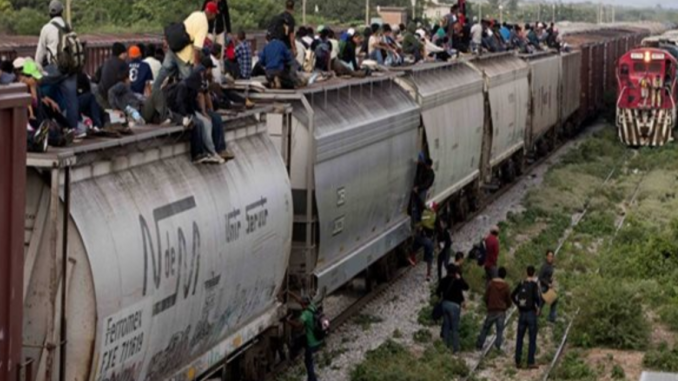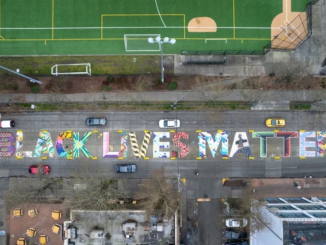
Some migrant families with children who’ve crossed illegally into the U.S. are being released in Texas by border patrol officials, a reversal of Trump-era policies to immediately send them back to Mexico, migrants’ rights advocates said.
It was unclear how widespread the shift was along the border, where it had been recent practice to immediately expel migrants due to the coronavirus pandemic. A change in Mexico’s migration policy added to the confusion after it appeared that officials there objected to the return of children, at least in the Rio Grande Valley.
At least 1,000 migrants have been allowed to remain in Texas in recent days and hundreds more in California, the New York Times reported on Saturday. The U.S has recorded more than 380,000 expulsions on the southern border since March, though some of those could be the same people multiple times, U.S. figures show.
“We are seeing people arriving in Brownsville on the U.S. side,” said Andrea Leiner, strategic coordinator at the medical aid group Global Response Management. Her group set up clinics in Matamoros, across the border from Brownsville, to attend to a ramshackle camp of mostly Central American migrants stranded there by former President Donald Trump’s signature border crackdown.
Biden’s Review
On Tuesday, President Joe Biden ordered a review and possible repeal of policies intended to deter illegal migration at the U.S.-Mexico border. However, he didn’t officially revoke the expulsion policy. The lack of clarity from both the Mexican and U.S. governments has sown confusion, said Astrid Dominguez, director for the ACLU of Texas’ Border Rights Center.
Biden’s Secretary of State Antony Blinken said in a statement on Saturday that the U.S. was ending separate agreements put in place by Trump with El Salvador, Guatemala, and Honduras that impeded their citizens from seeking asylum in the U.S., and offered them only the chance to seek it in Central America after being sent there.
“To be clear, these actions do not mean that the U.S. border is open,” Blinken said.
Child Migrants
“If there were changes, they are not applying them uniformly yet across the border,” Dominguez said. Migrants in the Rio Grande Valley told advocates that Mexican officials are no longer taking families expelled by the U.S., she said.
The Mexican government, however, said there has been no broad policy change and that it was still accepting migrants from Central America who are sent back from the U.S.
Mexico’s foreign relations ministry said in a statement that it made some adjustment in recent days due to legal changes that give officials power to make decisions in the cases of child migrants. “It is also common for there to be adjustments at the local level but that does not mean that the practice has changed or stopped,” the ministry said.
U.S. Customs and Border Protection said in a statement that some facilities were at maximum capacity. “When long-term holding solutions aren’t possible, some migrants will be processed for removal, provided a Notice to Appear, and released into the U.S. to await a future immigration hearing,” CBP said in a statement to Bloomberg News.
New Wave
Meanwhile, the mass of migrants who’ve been waiting to pursue asylum claims could soon be joined by a new wave. Two ruinous hurricanes in 2020 only deepened desperation from violence and poverty in Central America. In January, a migrant caravan from Honduras was halted in Guatemala.
Word that migrants were being released into the U.S. spread quickly to the camp in Matamoros. In the past week the camp swelled to as many as 1,000 people amid rumors they would all be allowed into the U.S. when Biden issued his executive order on migration, Leiner said.
Many in the camp, which has relied on support from religious charities and non-governmental organizations, have been stranded there since 2019, when the Trump administration began sending migrants seeking asylum into Mexico to await hearings.
“The migrants are hearing that less than a quarter of a mile away, people are getting on buses to go to their sponsors, and that is hurtful,” said Cindy Andrade Johnson, a deaconess and retired teacher in Brownsville who has volunteered at the camp since it was formed.
Criminal Gangs
Walter Melendez of Tegucigalpa, Honduras, has been in the camp with his wife and young daughter since October 2019. The 33-year-old said people in the squalid facility were frustrated after rumors they would be let into the U.S. didn’t pan out. Others no longer trusted lawyers who promised they would get preferential treatment, and instead of waiting they had decided to try and cross illegally, he said.
Some migrants who’d left the camp to avoid being easy targets for local criminal gangs had been returning in the hopes of soon being allowed to cross, he added.
In a sign of the violence that migrants face, Mexico recently arrested a dozen police officers in connection with the murder of 19 people in Tamaulipas state, where Matamoros is located. At least 14 of the dead were identified as Guatemalan.
Migrant advocates say they hope to prioritize the cases of those who’ve suffered extortion, kidnapping and rape while waiting in Mexico.
“We put our trust in God and this new President Joe Biden who has promised to quicken the process,” Melendez said. “Inside the U.S. is a lot less risky than here.”
*story by NewsMax


